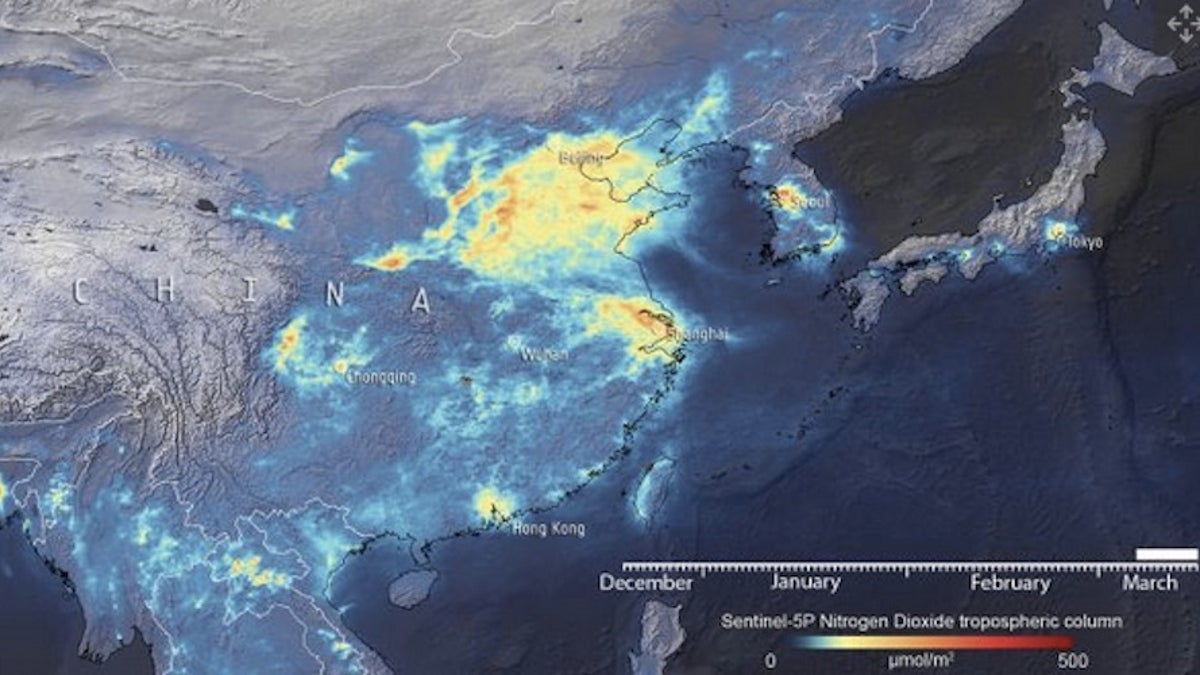Fox News Flash top headlines for March 20
Fox News Flash top headlines are here. Check out what's clicking on Foxnews.com.
Get all the latest news on coronavirus and more delivered daily to your inbox. Sign up here.
Emissions have dropped significantly over Italy and portions of China as a result of the near-total shutdown from the novel coronavirus, satellite images reveal.
As the pandemic has spread, satellites orbiting Earth have observed lowered air pollution over Italy and lowered nitrogen-dioxide emissions over China.
TROPOMI, the Tropospheric Monitoring Instrument onboard the Copernicus satellite, has been observing these atmospheric changes from space. The effort is a collaboration among the European Space Agency (ESA), the European Commission, the Netherlands Space Office, industry, data users and scientists.
Claus Zehner, ESA’s Copernicus Sentinel-5P mission manager, said in a statement: “The decline in nitrogen dioxide concentrations over the Po Valley in northern Italy is particularly evident."

A view from space of how emissions are changing in response to coronavirus. A view from space of how emissions are changing in response to coronavirus. ((ESA))
HIV DRUGS DON'T WORK AS CORONAVIRUS TREATMENT, CLINICAL TRIAL REVEALS
Josef Aschbacher, ESA’s director of earth observation programs, said in a statement: “Satellites offer a unique vantage point to monitor the health of our planet. Sentinel-5P is one of seven Copernicus satellites in orbit today. It currently provides the most accurate measurements of nitrogen dioxide and other trace gases from space."
A combination of satellite observations and computer models of the atmosphere showed a 20- to 30-percent decrease in surface particulate matter over huge parts of China.
“As nitrogen dioxide is primarily produced by traffic and factories, it is a first-level indicator of industrial activity worldwide. What is clearly visible is a significant reduction of nitrogen dioxide levels over China, caused by reduced activity due to COVID-19 restrictions, but also the Chinese New Year in January," Aschbacher said.
“The Copernicus program is a perfect example of how space serves all European citizens by combining the political strength of the EU with the technical excellence of ESA," he added.









































